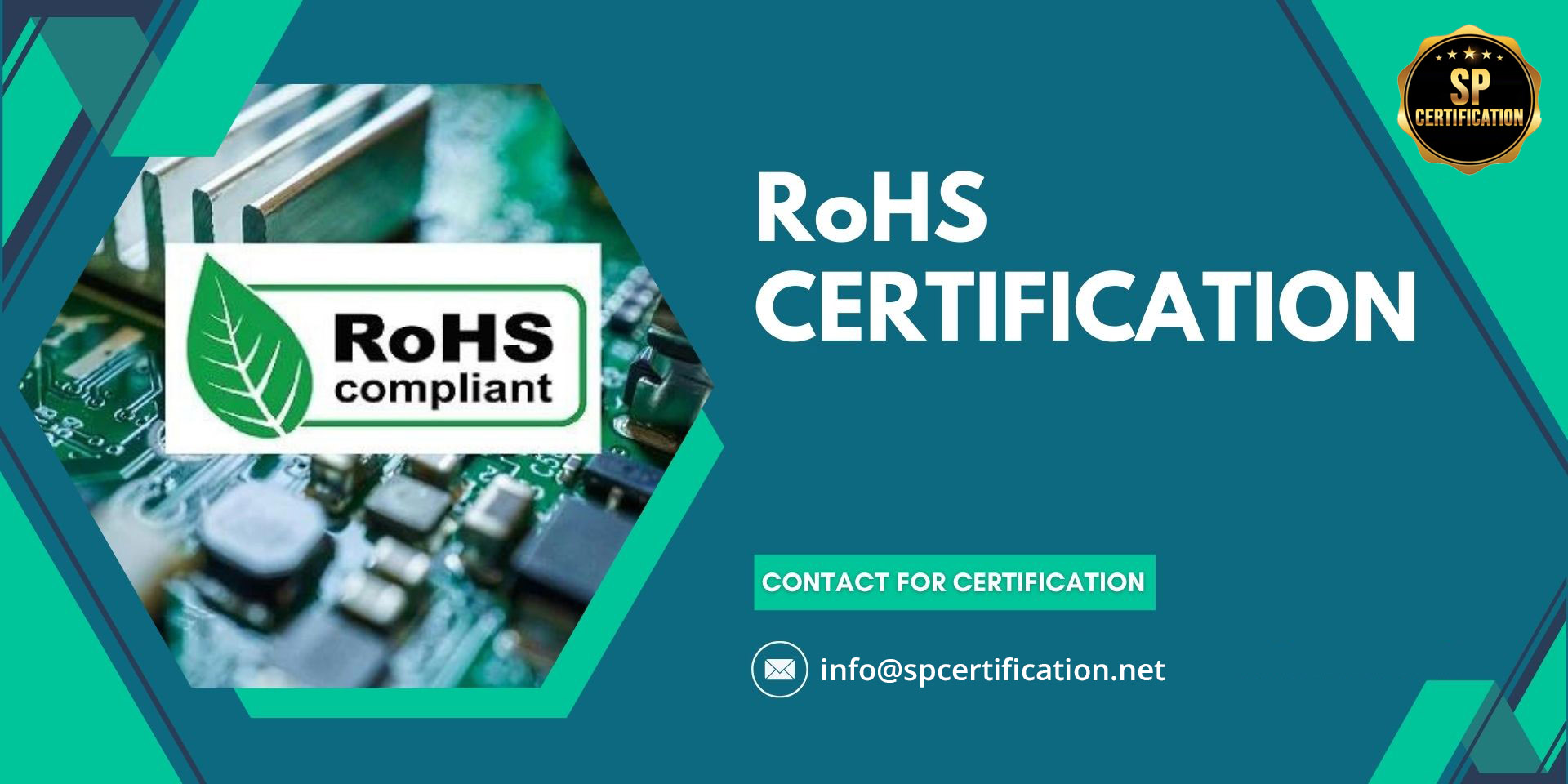What is RoHS Certifications
RoHS certification, short for Restriction of Hazardous Substances certification, is a compliance standard that restricts the use of certain hazardous materials in electrical and electronic products. The RoHS directive aims to reduce the environmental impact of electronic waste by limiting the use of substances such as lead, mercury, cadmium, hexavalent chromium, polybrominated biphenyls (PBB), and polybrominated diphenyl ethers (PBDE) in electronic and electrical equipment.
Products that comply with RoHS regulations are certified as RoHS compliant. Manufacturers must ensure that their products meet RoHS requirements and are free from restricted substances. RoHS certification is often a legal requirement for selling electronic products in certain markets, including the European Union (EU), and is indicated by the RoHS compliance mark.
Purpose of RoHS Certification
The purpose of RoHS (Restriction of Hazardous Substances) certification is to restrict the use of certain hazardous substances in electrical and electronic equipment (EEE). The main objectives of RoHS certification are:
Environmental Protection:
By restricting the use of hazardous substances in EEE, RoHS aims to reduce the environmental impact of electronic waste (e-waste) and promote the recycling and safe disposal of electronic products.
Human Health:
RoHS aims to protect human health by reducing exposure to hazardous substances such as lead, mercury, cadmium, and others, which can have harmful effects on health if not properly managed.
Promote Sustainability:
By encouraging the use of safer, more sustainable materials in electronic products, RoHS aims to promote sustainability and reduce the environmental footprint of the electronics industry.
Harmonization:
RoHS certification helps harmonize regulations across different markets, making it easier for manufacturers to comply with environmental requirements in various regions.
Overall, RoHS certification plays a crucial role in ensuring that electronic products are safe, environmentally friendly, and compliant with regulatory requirements, contributing to a cleaner and safer environment for all.
Benefits of RoHS Certification
RoHS (Restriction of Hazardous Substances) certification offers several benefits for manufacturers, consumers, and the environment. Some of the key benefits include:
Environmental Protection:
RoHS certification helps reduce the environmental impact of electronic waste (e-waste) by restricting the use of hazardous substances such as lead, mercury, cadmium, and others in electronic products.
Consumer Safety:
By ensuring that electronic products are free from hazardous substances, RoHS certification helps protect consumers from potential health risks associated with exposure to these substances.
Compliance with Regulations:
RoHS certification is often a legal requirement for selling electronic products in many markets, including the European Union (EU). Certification helps manufacturers comply with these regulations and avoid penalties for non-compliance.
Market Access:
RoHS certification is recognized globally and is often required for accessing international markets. Certification can help manufacturers expand their market reach and increase sales opportunities.
Brand Reputation:
RoHS certification demonstrates a manufacturer's commitment to environmental sustainability and product safety, enhancing their brand reputation and credibility among consumers and business partners.
Cost Savings:
By reducing the use of hazardous substances and promoting recycling, RoHS certification can lead to cost savings for manufacturers in terms of waste management and compliance with regulations.
Overall, RoHS certification provides a range of benefits that contribute to a cleaner environment, safer products, and improved market access for manufacturers.
What is RoHS Standard?
The RoHS (Restriction of Hazardous Substances) Directive, officially known as Directive 2011/65/EU, sets the standard for restricting the use of certain hazardous substances in electrical and electronic equipment (EEE). The directive aims to reduce the environmental impact of EEE by restricting the use of substances that are harmful to human health and the environment.
The RoHS directive restricts the use of the following substances in EEE:
1. Lead (Pb)
2. Mercury (Hg)
3. Cadmium (Cd)
4. Hexavalent chromium (Cr6+)
5. Polybrominated biphenyls (PBB)
6. Polybrominated diphenyl ethers (PBDE)
The RoHS standard specifies maximum concentration limits for these substances in EEE, with some exemptions for specific applications where alternatives are not yet available. Manufacturers of EEE must ensure that their products comply with these restrictions and carry out testing and certification to demonstrate compliance.
The RoHS directive is applicable in the European Union (EU) and has been adopted by many other countries around the world. Compliance with RoHS is often a legal requirement for selling EEE in these markets, and certification is required to demonstrate compliance.
To get RoHS Certification please contact: info@spcertification.net
Popular Standards
- ISO 9001:2015 Certification
- CE Marking Certification
- BIFMA Certification
- GREENGUARD Certification
- Greenpro Certification
- RoHS Certification
- EN Certification
- ASTM Certification
- CMMI Level Certification
- SOC1 / SOC2 Certification
- HACCP Certification
- GMP / cGMP Certification
- GAP Certification
- GHP Certification
- GDP Certification
- GLP Certification
- BRC Certification
- Kosher Certification
- HALAL Certification
- Organic Certification
- Reach Certification
- FSC Certification
- GRS Certification
- RCS Certification
- Sedex Certification
- BSCI Certification
- HIPAA Certification
- AIOTA Certification
- AS 9100D Certification
- DOP Certification
- FCC Certification
- FDA Certification
- Free Sale Certification
- FSSC 22000 Certification
- GDPR Certification
- GOTS Certification
- GOLS Certification
- IATF Certification
- IFS Food Certification
- IP Rating Certification
- Non-GMO Certification
- PCI-DSS Certification
- R2 Certification
- SEFA 10 Certification
- TL 9000 Certification
- ZDHC Certification
- C-11 Certification
- ICS 11 Certification
- PEFC Chain of Custody Certification
- ZDHC Certification
- DIN Certification
- IEC Certification
- ISO 14001:2015 Certification
- ISO 45001:2018 Certification
- ISO 22000:2018 Certification
- ISO 21001:2018 Certification
- ISO 13485:2016 Certification
- ISO 20000-1:2018 Certification
- ISO 27001:2022 Certification
- ISO 50001:2018 Certification
SP Certification
SP Certification was established by team of professionals. SP Certification is a Non-Profit independent Certification Body. SP Certification provides assessment and registration services in compliance with the requirements of various International standards. SP Certification provides committed, cost effective, professionally and globally recognized assessment services.

